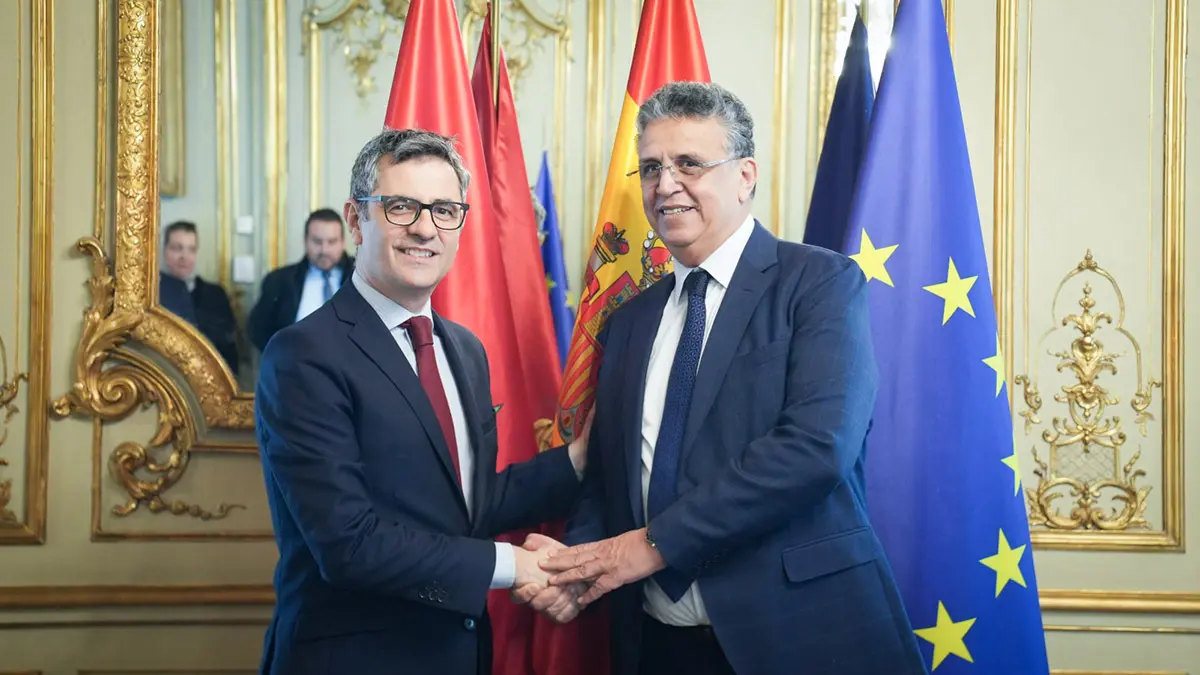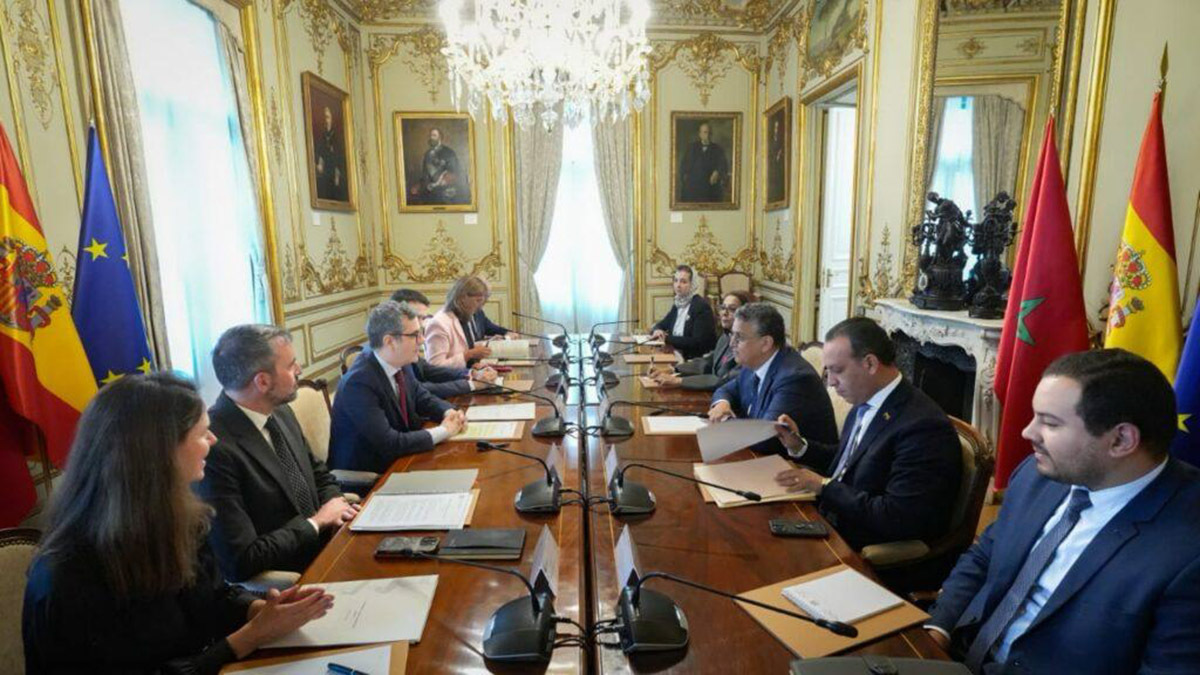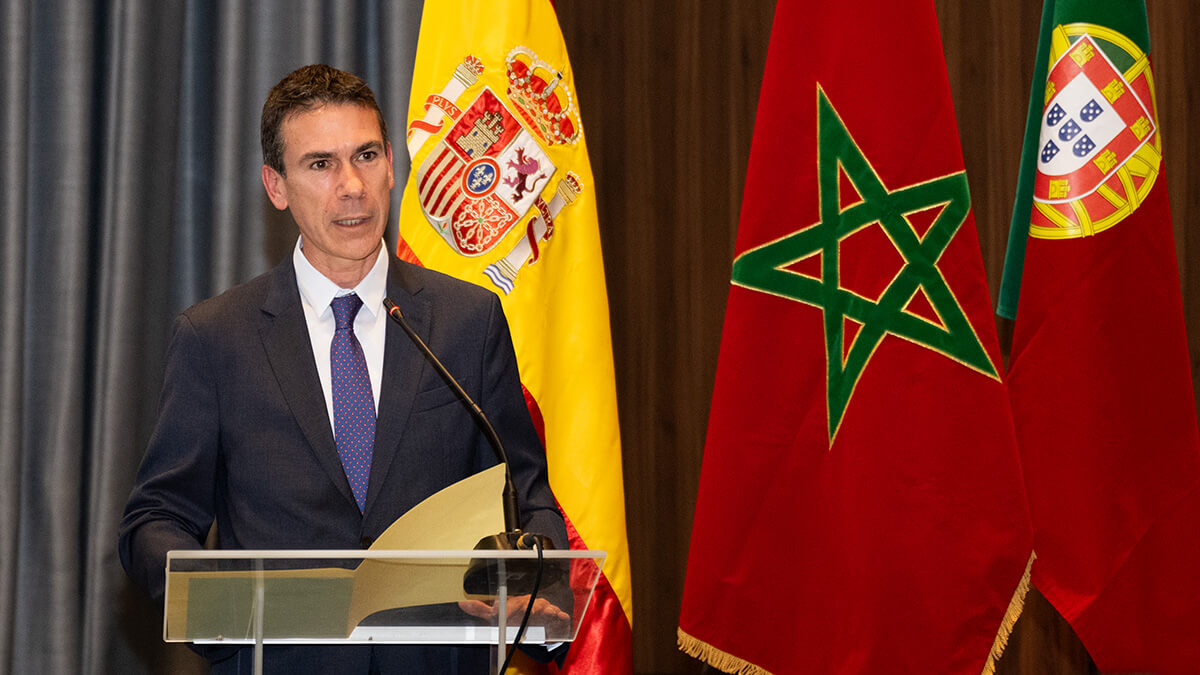The Spanish and Moroccan Ministers of Justice sign a declaration to strengthen judicial co-operation in the run-up to the 2030 World Cup
The Spanish Minister of Justice, Félix Bolaños, and his Moroccan counterpart, Abdellatif Ouahbi, agreed to strengthen judicial collaboration in the fight against transnational and organised crime

Spain and Morocco continue to strengthen their diplomatic relations and deepen bilateral cooperation, in this case in the field of Justice, following the meeting held on 4 March at the Palacio de Parcent in Madrid, the headquarters of the Ministry of Justice, between the Spanish Minister of the Presidency, Justice and Relations with the Courts, Félix Bolaños, and the Moroccan Minister of Justice, Abdellatif Ouahbi.
After the meeting, both ministers signed a joint declaration in which they commit to continue strengthening the mechanisms of judicial cooperation between both countries in order to respond to international crime and the challenges that organised crime represents.
The declaration also underlines the relevance of this bilateral cooperation in the field of Justice with a view to the joint organisation, between Spain, Morocco and Portugal, of the 2030 Football World Cup.
Dialogue and exchanges in the judicial sphere
The declaration signed by the Spanish and Moroccan ministers of justice places special emphasis on strengthening judicial cooperation to face the challenges posed by organised crime, especially through intensifying dialogue and exchanges in the judicial sphere, deepening the already existing judicial cooperation.

On the other hand, the agreement also addresses the modernisation, digitisation and improvement of access to the judicial system, as well as the use of alternative dispute resolution methods and the management of cross-border matters.
2030 World Cup
As was to be expected, the Ministers of Justice of both countries emphasised the need for effective judicial cooperation with a view to jointly organising the 2030 World Cup with Portugal. This cooperation requires the exchange of experiences and the consolidation of the joint commissions provided for in the civil and criminal legal assistance agreements, as agreed in the discussions that began in April 2024 in Madrid.
Both ministers reiterated their commitment to deepen this cooperation through specific agreements, especially through the Morocco-Spain-Portugal Joint Justice Commission, the main framework until the conclusion of the 2030 World Cup.
They also emphasised the importance of cooperation in the organisation phase of the World Cup, stressing that the modernisation and efficiency of the judicial system are essential to guarantee legal certainty and the smooth running of international events.
On the part of the Moroccan government, in addition to the Minister of Justice Abdellatif Ouahbi, the meeting was also attended by the Director of Cooperation and Communication, Rima Lablaili; the Director of Criminal Affairs, Pardons and Crime Detection, Hicham Mellati; and the Moroccan Ambassador to Spain, Karima Benyaich.
On the part of the Spanish government, in addition to the minister, the meeting was also attended by the Secretary of State for Justice, Manuel Olmedo; the Deputy Director General for International Legal Cooperation, Paula Monge; the Spanish ambassador to Morocco, Enrique Ojeda; and the director of the minister's office, María Eugenia de la Cera.
Also present were the Moroccan liaison magistrate to the Spanish judicial authorities, Nadia El Yousfi, and her Spanish counterpart, Pedro Félix Álvarez.
An exceptional success
At the end of the meeting, the Spanish ambassador to Morocco, Enrique Ojeda, emphasised to the press the ambition of the three countries organising the 2030 World Cup to make this event a joint success: ‘Our ambition is to make this World Cup an exceptional event whose success reflects that of our three countries’.

The ambassador emphasised the commitment to work together with Portugal on legal matters related to the competition and highlighted the importance of synergy between the three countries to consolidate tripartite cooperation.
After the meeting at the Ministry, the participants moved to the residence of the Moroccan ambassador to Spain, Karima Benyaich, to share iftar, the dinner that breaks the fast during the month of Ramadan.









